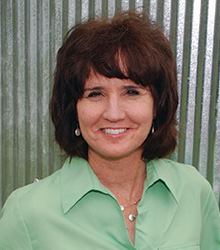Fill your knowledge gaps, measure results, prove your value and lead the marketing strategy — those are key highlights from a dealer roundtable at Farm Equipment’s fourth Dealership Minds Summit, held recently in Iowa City, Iowa.
Chad Nielsen, marketing manager for Wagner Equipment Co., led the discussion for the group of dealers of varying sizes and varying manufacturers. Wagner Equipment is an AGCO and Caterpillar dealer that covers Colorado, New Mexico and far west Texas.
“We’re all on a journey somewhere between having small departments where we have to be jacks of all trades, to shifting to something that's more robust. With that, comes the pressures of figuring out how to reassign the work and deciding whether to find experienced people to bring into our business or outsource to fill that need,” says Nielsen.
Solving the Staffing Issue
Part of the challenge facing many of the dealers in the group centered on the responsibilities of the marketing team. And, sometimes, menial tasks interfered with being able to focus on strategy and results. “We do over 130 events a year. There are days where I’m sitting at the executive table, helping make decisions that steer the company and then the next day I’m a ‘roadie’ pounding tent stakes at the state fair,” one dealer says.
Another common staffing issue was simply determining the skill set of the marketing team. For instance, when is it best to hire a designer, content developer or data expert; when do you build the knowledge base of the existing team; and when do you turn to a vendor? “We’re sorting out what are the high payout activities for us with the team we have right now and what are we are missing?” says one dealer.
Nielsen challenged the group to make the shift to a more progressive, numbers-driven approach to marketing. “Things started shifting for us when we said, ‘We need data analytics, CRM and sales coverage assessment,” Nielsen says.
One attendee says they are building their team’s skills through succession. “We have a marketing director, marketing coordinator and a media specialist. I'm trying to prep my marketing coordinator to be marketing manager, so everybody moves up. We’ll break up responsibilities so I have someone specializing on the digital and someone specializing on traditional media. I still think traditional media is important and I'll stand on anyone's desk and argue that,” he says.
Analyzing the Data
Digital marketing has opened up new ways to pinpoint how well a strategy is capturing customers’ attention, but those interactions still need to be converted to a sale.
“There are a lot of things we're doing that have the potential to be measured. If I say, ‘How might this fit into a sales funnel?’ I start finding ways for them to fit,” says Nielsen. For instance, look at sales increases or market share gains in a territory or for a particular product and relate that back to marketing campaigns.
One attendee says he tries to remain objective. “When you think about ROI and our advertising spend, we have to remove emotion from it. When we see our competitors doing something, we immediately assume our competitors are doing it right. Be confident in your own beliefs based on your experience,” he says.
One dealer shared about how they are increasing their marketing for compact utility tractors because it reaches across the segments — consumer, agriculture and construction. Another aims to be in on inventory discussions early in the process so he can coordinate marketing campaigns and be able to launch them in a timely manner.
Several dealers commented on manufacturer co-op dollars. Some are not using those budgets because they are implementing campaigns that promote the dealership brand as opposed to a particular manufacturer.
Selling the Team
As part of measuring ROI, the marketing team has to make sure the management team understands its value. “Good CFOs, CEOs and COOs are going to look at a profit and loss statements and say, ‘What is your worth as a marketer and as a compelling part of this business?’” Nielsen says.
Nielsen says he keeps customers, products and salespeople as key deciding factors for any marketing decisions. “Everything we are doing, whether it is a show, an event, an advertising or promotion, we have to be able validate that it's connecting customers with a product and with our sales organization,” he says.
One dealer sends out a marketing update every Friday. “I always say that the marketing department has to be the most transparent department, especially because we have a fairly large budget. You have to justify that spend,” he says.
Leading the Strategy
Several dealers commented that it can seem overwhelming in terms of marketing data and ROI.
“The whole world is struggling with this transformation. This is just not unique to our industry. You don't have to have everything in place to win. You can start slowly and get to where you need to be.
“There have been some massive shifts in the last few years. I can tell you what lead is worth, what a digital ad has produced, all the way through the pipeline. And it's all because of the data and technology, but you just have to start somewhere,” he says.






